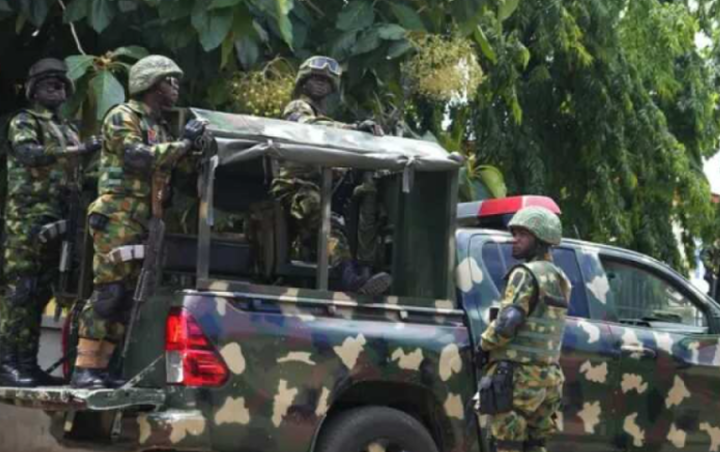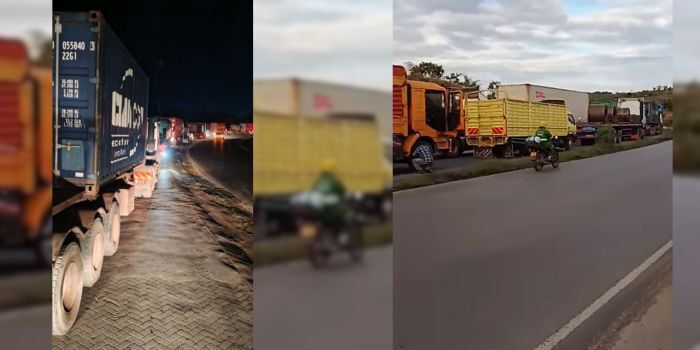FAAN v. Bi-Courtney: The Lagos airport concession agreement
Moving around from one location to the other in Nigeria has become a major challenge, for a number of reasons. In its 2015 Manifesto, the ruling All Progressives Congress (APC) had promised to deliver a minimum five thousand kilometres of durable highways in Nigeria. Ten years later, major roads in Nigeria have collapsed. On their way back to Kano from the 22nd National Sports Festival held in Ogun State last week, 22 athletes lost their lives in a fatal road accident. This is a regular occurrence on many of our roads. Even when you decide to risk road travel, the fear of bandits, criminals and kidnappers is enough discouragement as many people get kidnapped, robbed and killed. Added to this is extortion by various security agencies positioned at strategic portions of the bad roads, causing major delays and frustration for motorists, passengers and other road users, thus prolonging travel time. These and many other factors make air travel very attractive for many Nigerians. On a good day, most airlines are fully booked for the busy routes despite the prohibitive cost of the air tickets, the delays and cancellations. You can then imagine my curiosity and interest when I got to read of the court case between the Federal Airports Authority of Nigeria (FAAN) and Bi-Courtney Limited, concerning the building and operation of the Murtala Muhammed Airport 2 (MMA2).
The facts of the case as reported in (2025) 7 NWLR (Pt.1989) 365 are that the Federal Government of Nigeria granted a concession to the 1st respondent (Bi-Courtney) to re-develop the fire-razed Murtala Muhammed Airport domestic terminal 2 (MMA2) Ikeja, Lagos on a Build, Operate, and Transfer (BOT) basis. By virtue of the concession agreement executed on 24th April 2003 between the Federal Government of Nigeria (represented by the Honourable Minister of Aviation) as Grantor and the appellant (FAAN) on the one part, and the 1st respondent and Stabilini Visinoni Limited, as concessionaire on the other part, the 1st respondent was to finance, design, build and operate MMA2 for a period of 36 years commencing from 7th May 2007. Clause 2.2 (a) – of the concession agreement provided as follows:
“(a) Save as otherwise provided in articles 17.4 and 20.2 the concession granted to the concessionaire pursuant to this agreement is exclusive. The Grantor shall ensure that no part of the concession shall be granted to any other party unless the concessionaire is in breach of any of its obligations under this agreement that would give rise to a right of termination by the Grantor under Article 17 or is in breach of Nigerian law in relation to this concession.
The Grantor guarantees and assures that it will not build any new domestic terminal in Lagos State and that no existing domestic terminal will be materially improved throughout the concession period that would compete with the concessionaire for the same passenger tariff provided that the concessionaire shall have a right of first refusal in the event that passenger traffic during the concession period necessitates an expansion of the terminal and the first right of consideration if the Grantor elects to build a new domestic terminal in Lagos State.
The Grantor further guarantees and assures that all scheduled domestic flights in and out of FAAN’s Airport in Lagos State shall during the concession period operate from the terminal.”
Further, by clause 3.2 (c) of the concession agreement, it is stated that:
“The grantor hereby represents and warrants that –
the Concession Rights granted under this agreement are valid and neither it or any Relevant Authority has issued (nor are obliged to issue) to any person, any rights or privileges that are inconsistent with or conflict with or would limit or interfere with the exercise and enjoyment by the Concessionaire of the Concession Rights.”
Contrary to the tenor of the agreement, the Federal Government of Nigeria allowed domestic flights in and out of Lagos State using a terminal other than terminal MMA2 concessioned to the 1st respondent, thereby denying the 1st respondent of its rights to levies and surcharges from fuel marketers delivering fuel to airlines operating scheduled flights into and from MMA2. Also, during the subsistence of the concession, the Federal Government granted an approval in principle to Lagos State Government for the construction of an airport in the State, while refusing to deliver vacant possession of General Aviation Terminal of the Murtala Muhammed International Airport, Lagos, to the 1st respondent as agreed in the concession agreement. The 1st respondent asserted that the actions of the Federal Government were all towards denying the 1st respondent the opportunity of recouping its N39 Billion Naira expended in reconstruction of MMA2. So, in line with Article 22.1.1 of the concession agreement, and by a letter dated 20th June 2008, the 1st respondent notified the 2ndRespondent (Attorney-General of the Federation) of five disputes which had arisen between the parties suggesting a breach of the agreement by the Federal Government of Nigeria. The 2nd respondent inaugurated a 7-member co-ordinating committee on 10th September 2008 to resolve the issues raised by the 1st respondent.
The coordinating committee, after seven meetings and painstaking consideration of the submissions of both parties, submitted its report dated 10th October 2008 wherein it resolved all five issues submitted for consideration in favour of the 1st respondent. It directed the Federal Government of Nigeria to take immediate steps to move all scheduled domestic flights operations in Lagos State to MMA2; to render account of all revenue which had accrued on such scheduled domestic flights operations of any airline outside MMA2 while MMA2 was operational; and to remit such revenue to the 1st respondent. The committee also resolved that the 1st respondent has the exclusive right to collect levies and surcharges paid by fuel marketers delivering fuel to airlines operating scheduled domestic flights into and from MMA2. The report of the coordinating committee was served on the Federal Government of Nigeria and all its agents/agencies in the aviation sector, including the appellant but they failed to comply with the directives of the coordinating committee. Therefore, the 1st respondent commenced an action by an originating summons filed on 23rd January 2009 in Suit No. FHC/ABJ/CS/50/2009 against the 2ndrespondent. However, the appellant was not a party to the action. After hearing the suit, the trial court delivered its judgment on 3rd March 2009, and found in favour of the 1strespondent. The appellant thereafter filed a motion on notice on 29th June 2010 before the Court of Appeal praying for:
Extension of time within which to seek leave to appeal as “party interested” against the judgment of the trial court.
Leave to appeal as “party interested” against the judgment of the trial court.
Extension of time within which to appeal as “party interested” against the judgment of the trial court.
Any further order(s) the Court of Appeal may deem appropriate to make in the circumstances of the case.
: WhatsApp stops working on iPhone 6, 12 other phone models from June 2025
The appellant based its application on a number of grounds and supported it with an affidavit of 5 paragraphs to which it attached 5 exhibits. In the supporting affidavit, the appellant stated that it delayed in filing the application because it was ignorant of the existence of the suit and the judgment of the trial court. It further stated that after it became aware of the judgment, it had to wait for authorisation from the Federal Ministry of Aviation, and received it on 23rd March 2010. On its part, the 1st respondent opposed the application by filing a 19-paragraph counter-affidavit. The Court of Appeal heard the application on the merits and dismissed it on grounds, amongst others, that the application was incompetent and that the appellant did not disclose good and substantial reasons for failure to appeal within the period prescribed by law. The appellant was dissatisfied with the ruling of the Court of Appeal and it appealed to the Supreme Court, which dismissed the appeal. The apex Court held the application of FAAN to be incompetent as no leave was sought to appeal as a party interested in the case in which it was not originally a party.
Many issues arise from this and other cases pending in our courts. From the facts as reported, the case was filed at the Federal High Court on 23rd January 2009 and judgment was delivered on 3rd March 2009. Judgment was delivered by the Court of Appeal in July 2011 while that of the Supreme Court came in June 2024. Essentially, the case spent about two months in the trial court, two years in the Court of Appeal and thirteen years in the Supreme Court, on a matter so critical as air travel in and out of the commercial capital of Nigeria. The case was commenced by originating summons which means witnesses were not called. Although the Supreme Court delivered its judgment on 28th June 2024, the case was not reported until 5th May 2025. What happened to the prosecution and defence of the appeal itself and indeed the airport concession agreement? Are there other cases of this nature pending in the courts? It took the appellant, FAAN two years to know of a landmark judgment affecting its operations in its busiest zone and another thirteen years to conclude its appeal in the Supreme Court. I have used MMA2 several times and I am impressed by the way and manner Bi-Courtney has handled its operations. I had in the past recommended it as a model for other domestic airports in Nigeria. I however do not think it patriotic for any government to tie the fate of its people to a single private entity, through a monopoly. I strongly believe that healthy competition enhances effectiveness and efficiency. Parties in the case should work out a solution that will favour return on investment for the investor and improved air transport for all Nigerians.











